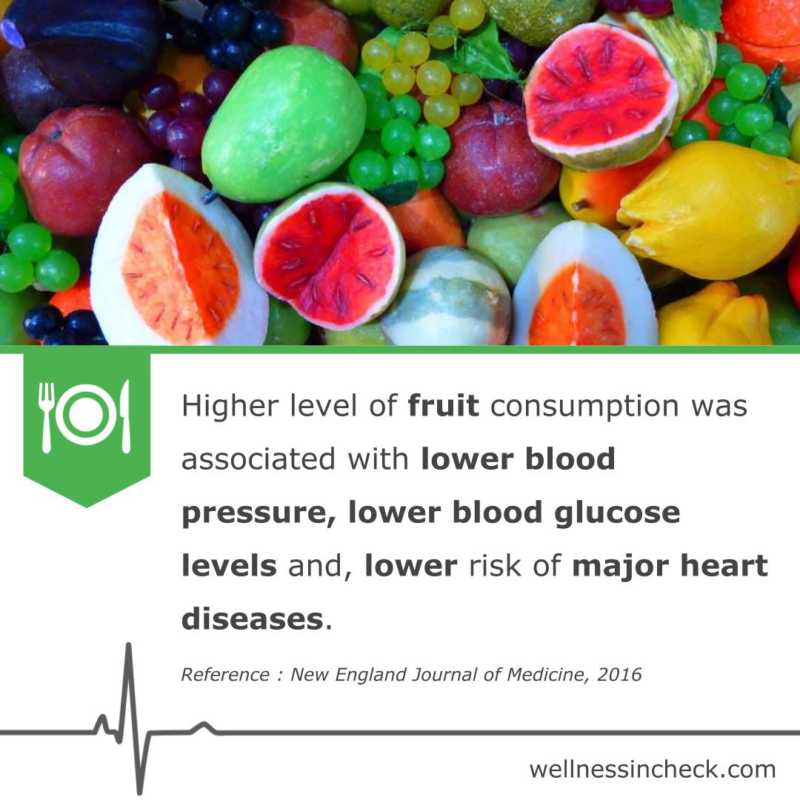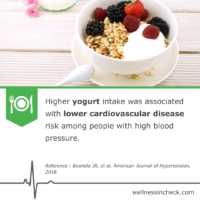With its potent health benefits, plant-based diets are gaining popularity nowadays. The inclination of diet enthusiasts towards consuming nutritionally rich and healthy food has increased in the past few years. Recent evidence proves that plant-based diet has several health benefits.


Why Plant-based diet is healthy?
A plant-based diet incorporates the foods that are eggs, dairy and meat free. The veggie diet completely eliminates animal products including poultry, fish, eggs honey and meat. Sourced from plants, all included food items are variety of fruits, nuts, and vegetables.
This plant-based diet is not only healthy, but sets its aim to improve the consumption of plant-based nutrients. Plus, it reduces the use of unhealthy processed food, including animal products and oils. Not only this diet is low fat, but also encourages the use of cooked or raw vegetables, beans, nuts (small amount), peas, soybeans, and lentils.
Including plenty of different vegetables, fruits, legumes and whole grains is an ideal way to add variety in your plant-based diet. It also includes a moderate amount of natural sweeteners, seeds, avocados, soy, and low fat wheat-based products.
The diet excludes heavily processed food in plant-based diet. It restricts the consumption of products like white bread that have extra sugar, refined grains, artificial sweeteners, and high cholesterol foods. Plant-based diet follows certain principles:
- The inclusion of whole food, reduction of processed food
- No or limited consumption of animal-derived products
- Maximum consumption of plants, including whole grains, fruits, seeds, nuts, and vegetables
- Eliminates refined foods including white flour, processed oils, and added sugar
- Consumption of different types of plants and their sources (pure and high quality)
- A Plant-based diet is different from Vegan/Vegetarian Diet: Vegan diets do not contain any animal product and vegetarians eliminate all meats. Plant Based diets emphasize on whole foods and plants, and uses animal products in a very limited quantity.
Advantages of Plant-based Diets:
Typically, plant-based diets have a low level of saturated fat and cholesterol. It contains whole foods and is loaded with fiber and healthy nutrients.
Following are the clinically proven benefits of plant-based diet:
Cardiovascular Disease:
A comprehensive analysis found a 24% reduction in the death ratio related to cardiovascular diseases in participants consuming vegetarian diet. The analysis was based on the comparison of death ratio between non-vegetarians and vegetarians.
A collaborative study conducted on 200,000 people concluded that people following a plant-based diet like fruits, vegetable, nuts, whole-grains, have a comparatively lower risk of symptoms associated with heart disease than people consuming animal products. The lower rate of heart attack and mortality events were also reported in people who followed plant-based diets.
Besides this, both quality and type of food are the major constituents of your diet regime. Plant-based diets based on sugary drinks, refined grains, and fruit juices are detrimental to your health as it increases the risk of cardiovascular diseases. Although vegetarian diets reduce the risks associated with many chronic diseases, and not all vegetarian diets offer the same health benefits. Simply adding vegetables to the diet will not demonstrate instant and effective results. Elimination of refined foods, sugars and processed food is equally important. That means only the right kind of food or vegetarian choices help you prevent heart diseases, especially when you follow a plant-based diet.
Hypertension (high blood pressure):
A number of studies have shown the optimal effects of a healthy diet on blood pressure. Eating foods sourced from plants play a critical role in lowering hypertension. A meta-analysis based on 39 studies found that vegetarian diets as compared to the non-vegetarian diet can lower high blood pressure.
Another study demonstrated how consumption of plant-based diet with low sodium (Japanese diet) can significantly reduce systolic blood pressure in patients.
Diabetes:
A vegetarian diet is linked to better sugar control in blood in diabetic people.
Plant-based diets are beneficial for the prevention and control of diabetes. A comprehensive study found that consumption of plant-based diets significantly lowers the risk of high blood sugar as compared to non-plant-based diet.
A 2008 research found that vegetarians were 74% less likely to develop diabetes than non-vegetarians, especially during their adolescence. Another study with more than 200,000 participants concluded that a plant-based diet reduced the risk of diabetes by up to 34%.
A large research conducted on 60,000 participants also found that diabetes rate in individuals on vegan diet is 2.9% while it is 7.6% in non-vegetarians.
Another research showed that lacto-ovo and vegan diets can reduce the risk of type 2 diabetes up to 50% as compare to non-vegan diets.
Breast and Colon Cancer:
Many studies have suggested that people who are on plant-based diets have a lower risk of different types of cancers.
A study conducted on 69,000 people showed that plant-based diets can lower the risk of gastrointestinal cancer. This rate is significantly higher in people who followed a Lacto-ovo vegetarian diet. This kind of diet includes dairy products and eggs. The dietary choice based on red meat or processed meat is one of the factors that can increase the risk of colorectal cancer.
Another study with more than 77,000 people supported the same effects of a vegetarian diet and found that it may reduce the risk of colorectal cancer by up to 22% than non-vegetarian.
Pescatarians (a diet based on fish consumption) can protect people from developing colorectal cancer by reducing the risk by up to 43% than non-vegetarians.
Obesity:
Over 1/3 of the U.S population have an obesity problem. Many studies have concluded that plant-based diets are potentially beneficial for losing weight.
A 2006 research demonstrated that plant-based diets are incredibly effective in controlling obesity. The study further found that the vegetarian population is not prone to developing high blood pressure, cardiovascular disease, obesity, and diabetes. The same study highlighted that plant sourced diets help people burn more calories after meals as compared to non-vegetarian diets. Food with saturated cholesterol burns fewer calories as they are stored in the form of fats.
Another research concluded that plant-based diets are beneficial for managing weight. They are more nutritious than diets based on meat. The study observed that vegetarians had well-shaped bodies than meat-eating participants.
The study suggests that with a remarkable nutrient density, plant-based diets must be recommended to obese people for weight management.
A reflective study conducted on 1,100 people proved that a plant-based diet can reduce 4.5 pounds (2kg) within 20 weeks if followed properly. The results were compared with people who followed non-vegetarian diet.
That means plant-based diets can help reduce body mass by reducing LDL cholesterol in the body.
A meta-analysis based on various epidemiologic studies found that plant-based diets can lower obesity rate and BMI in both children and adults. Precisely, an adult can have significantly lower BMI through a vegetarian diet. Similarly, the analysis found that vegetarian children have high cognition than non-vegetarians, with a prominent BMI difference that increases with adolescence. That is why the report emphasized the maximum use of plant-based diets to maintain optimal health.
Cognitive Decline
Many studies have shown that vegetable-rich diets can inhibit cognitive decline. It can even prevent disease, like Alzheimer’s, in aging adults. Vegetarian diets contain an adequate quantity of antioxidants and plant compounds which play a critical role in combating the symptoms of Alzheimer’s and can even prevent cognitive ailments.
A 2014 research demonstrated that a balanced plant-based diet has a plethora of benefits for cognitive health. A study based on the cognitive functions of older women (who followed a vegan diet) found that it can reduce cognitive decline. The study also found out that consumption of two fruits a day is really helpful for lowering the risk of dementia. This risk was even lower in people who were consuming three vegetable servings and two fruit servings a day.
Many studies have linked adequate consumption of fruits and vegetables with reduction and prevention of cognitive diseases. A meta-analysis based on nine studies including 31,000 people concluded that vegetable and fruits can reduce the risk of dementia by up to 20% and prevent various cognitive impairments.
Morality
In Dietary Guidelines Advisory Committee’s literature was reviewed for the effects of plant-based diet on cardiovascular diseases, adult mortality and heart strokes. According to review findings, vegetarian diets reduce mortality and heart disease risk as compared to non-vegetarian diet.
Plant-based diet: Pitfalls
Generally, vegetarian diets are considered to be lacking in protein. Proteins are amino acids that the human body cannot synthesize. Human body typically obtains proteins from variety of food sources, for instance eggs, dairy products, meat. Various plant sources also contain essential amino acids. While following a plant-based diet, it is imperative to ensure that your dietary choices provide enough proteins to maintain healthy skin, strong bones, and muscle mass. Bean, lentils nuts and seeds, in this regard, are some easy sources to improve protein consumption.
The iron in vegetarian diets has a lower bioavailability as compared to iron present in meat. Many plant-based iron-rich foods include raisins, kidney beans, spinach, cabbage, tomato juice, and cashews.
Deficiency of vitamin B12 can lead to serious health issues, like irreversible nerve damage and macrocytic anemia. People following a vegetarian diet may suffer from B12 vitamin deficiency and may need a dietary supplement to balance bodily requirements.
Similarly, fatty acid deficiency can cause various nail, skin and hair abnormalities. Vegetarians may also suffer from the deficiency of Omega-3 fats. Canola oil, flax seeds and walnuts are good sources to consume Omega-3s.
Summary
A high-quality plant based diet comprises discipline, proper planning and reading labels. Patients who are recommended plant-based diet should include plenty of vegetables and fruits including seeds, nuts, beans, and grains. Plus, avoiding processed, refined and oily food is very important. Plant-based diet offers a lot of health-related benefits, if followed in a correct manner.




